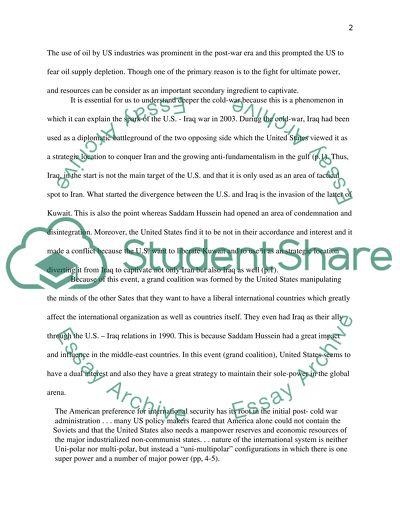Cite this document
(“Changes in chapter 3 (US Foreign Policy) Essay Example | Topics and Well Written Essays - 2250 words”, n.d.)
Retrieved from https://studentshare.org/environmental-studies/1414590-changes-in-chapter
Retrieved from https://studentshare.org/environmental-studies/1414590-changes-in-chapter
(Changes in Chapter 3 (US Foreign Policy) Essay Example | Topics and Well Written Essays - 2250 Words)
https://studentshare.org/environmental-studies/1414590-changes-in-chapter.
https://studentshare.org/environmental-studies/1414590-changes-in-chapter.
“Changes in Chapter 3 (US Foreign Policy) Essay Example | Topics and Well Written Essays - 2250 Words”, n.d. https://studentshare.org/environmental-studies/1414590-changes-in-chapter.


